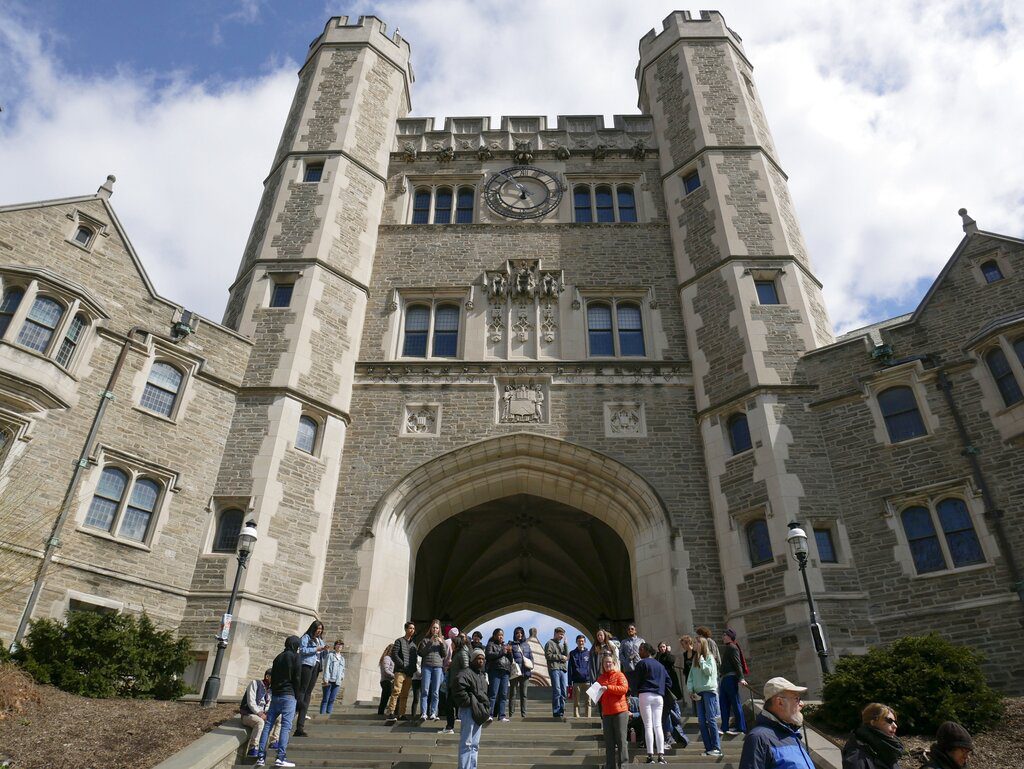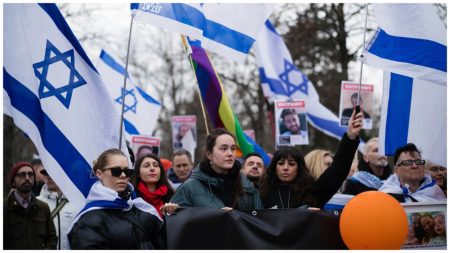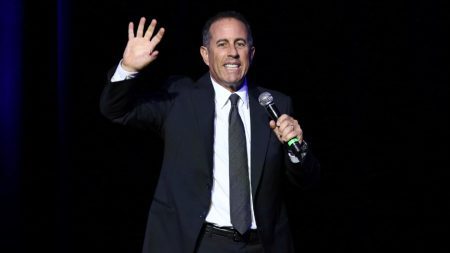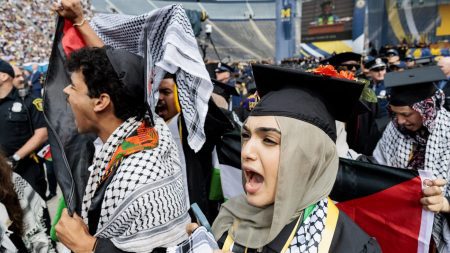Students at Princeton University are getting ready to establish a pro-Palestinian encampment, as seen in documents obtained by the National Review.
In one A document obtained by the conservative-leaning outlet., the students call their protest the “Princeton Gaza Solidarity Encampment” and list their demands, which include the university urging for a cease-fire in Gaza and criticizing Israel’s actions, providing financial transparency on its investments, and divesting its endowments from companies associated with Israel.
Princeton would also need to align itself with Palestinian institutions and distance from Israeli ones, like sponsoring birthright Israel trips.
“We’re not leaving until these demands are met — hundreds of students, alumni, workers, and professors will continue to peacefully protest. Our values prompt us to speak up for justice for Palestinians and address the unethical investments of Princeton University’s endowment. We will not be silenced, we will make ourselves heard. We will not stop until divestment!” the document reads.
The National Review obtained other documents the protesters distributed, including a list of professors supportive of their cause, how to recruit others to join the encampment, and different roles for people involved, such as obtaining supplies and assessing the level of risk for each role.
In one of the documents, the students emphasize that they do not believe extreme measures such as expulsion will be taken against students.
“We think expulsion is highly unlikely; only students who have been expelled at Vanderbilt were expelled for touching (‘assaulting’) a police officer. Expulsion is highly unlikely; at Princeton, it requires a committee, and we know that at least 2 faculty members who are part of the committee support the Faculty for Justice in Palestine,” the document reads.
The vice president for student life at Princeton has sent out an email to students reminding them of the school’s commitment to free expression — but warning there are strict limits to protests on campus.
“For those reasons, among others, our policies explicitly prohibit such conduct, and I want to be sure you understand that we will act promptly to address it. Any individual involved in an encampment, occupation, or other unlawful disruptive conduct who refuses to stop after a warning will be arrested and immediately banned from campus. For students, such exclusion from campus would jeopardize their ability to complete the semester. In addition, members of our community would face a disciplinary process (for students this could lead to suspension, delay of a diploma, or expulsion),” Rochelle Calhoun said.
At other pro-Palestinian encampments, hundreds of students have been arrested and some schools have even expelled students for their participation.
These protests have received bipartisan criticism, especially at Columbia University, where numerous lawmakers have visited and called for the president to resign.
The Hill has contacted a Princeton's Students for Justice in Palestine member to ask for their opinion.









